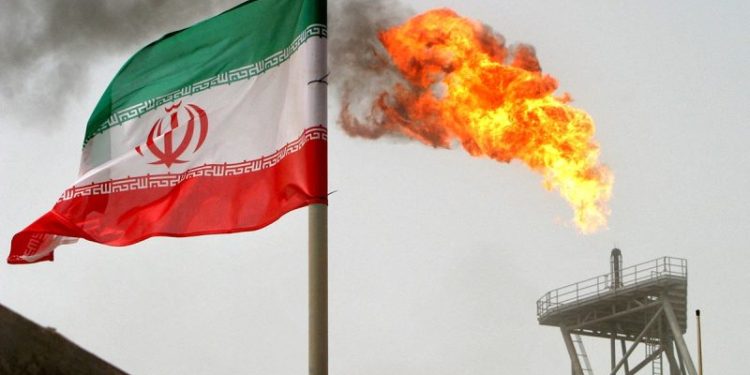
The U.S. State Department and Department of the Treasury reimposed what they describe as ‘maximum pressure’ sanctions on Iran’s ‘shadowy’ oil trade on Monday as tensions between Tehran and Washington remain high after President Donald Trump took office last month.
The State Department designated 16 entities and vessels part of a ‘network of illicit shipping facilitators’ that ‘obfuscates and deceives its role in loading and transporting Iranian oil for sale to buyers in Asia,’ spokesperson Tammy Bruce said in a written statement.
The State Department, along with the Department of the Treasury’s Office of Foreign Assets Control (OFAC), are concurrently sanctioning a total of 22 people and identified 13 vessels ‘as blocked property, across multiple jurisdictions, for their involvement in Iran’s oil industry,’ the statement said.
Bruce said those involved in the shadowy network have ‘shipped tens of millions of barrels of crude oil worth hundreds of millions of dollars.’
‘Today’s action represents an initial step to realize President Trump’s campaign of maximum pressure on the Iranian regime,’ she said. ‘It disrupts efforts by Iran to amass oil revenues to fund terrorists’ activities.’
Those facing sanctions include oil brokers in the United Arab Emirates and Hong Kong, tanker operators and managers in India and the People’s Republic of China, the head of Iran’s National Iranian Oil Company, and the Iranian Oil Terminals Company, whose operations help finance Iran’s destabilizing activities, the OFAC said in a statement.
Secretary of the Treasury Scott Bessent said the U.S. will continue to identify and go after anyone involved in the illicit network with Iran.
‘Iran continues to rely on a shadowy network of vessels, shippers, and brokers to facilitate its oil sales and fund its destabilizing activities,’ Bessent said in a written statement. ‘The United States will use all our available tools to target all aspects of Iran’s oil supply chain, and anyone who deals in Iranian oil exposes themselves to significant sanctions risk.’
After Trump signed an executive order reinstating the campaign earlier this month, Iranian Foreign Minister Abbas Araghchi said ‘maximum pressure is a failed experiment, and trying it again will only lead to another failure.’
The return of the maximum pressure campaign comes as tensions flare in the Middle East between Iran-backed Hamas and Israel, and Tehran’s icy relationship with Washington under the Trump administration.
The U.S. Department of Justice last year charged the Islamic Republic with an assassination attempt against Trump, presumably in retaliation for the military strike that eliminated IRGC General Qassem Soleimani in 2020. Iran’s president, however, denied the claim during an interview with NBC News’ Lester Holt in Tehran.
Iranian officials have also pushed back on all U.S. efforts to curtail its nuclear ambitions.
Fox News Digital’s Benjamin Weinthal contributed to this report.















